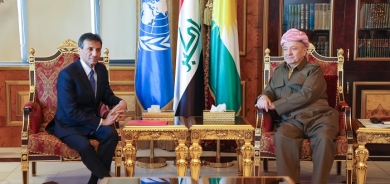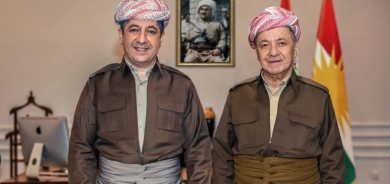Ongoing Erbil-Baghdad Negotiations Progressing Positively, Budgetary Disputes Remain

In a recent statement to reporters during an election rally for the Kurdistan Democratic Party (KDP), Omed Sabah, the president of Kurdistan Regional Government (KRG) Diwan, expressed optimism about the ongoing negotiations between Erbil and Baghdad. Sabah, a senior member of government delegations involved in the talks, highlighted that the discussions cover a range of critical issues, including budgetary matters, disputed territories, and broader subjects such as oil and gas.
“The negotiations are going in the right direction,” stated Sabah, emphasizing the positive trajectory of the talks. He also mentioned that a new delegation from the Kurdish region is expected to return to Baghdad soon to continue the discussions.
However, despite the positive momentum, the KRG has faced challenges regarding its share in the budget. Although the Kurdish region's share is stipulated at 12 percent, it has not received its entitlements since the approval of the three-year budget in June. Instead, Baghdad has provided financial support in the form of loans until September.
Sabah disclosed that the KRG has officially requested additional funds from Baghdad to cover the remaining months of the year until the budget law is amended. As per the agreement between the two governments, a monthly transfer of 700 billion IQD ($538 million) is supposed to be made to the Kurdistan Region. Despite the Kurdish region fulfilling its obligations, Baghdad has reportedly disbursed less than initially committed, according to KRG officials.
Prime Minister Masrour Barzani addressed concerns about the violation of teachers' rights in the Region, asserting that after presenting Baghdad with detailed payroll data, such infringements could no longer be tolerated.
The negotiations between Erbil and Baghdad remain crucial for resolving longstanding issues and fostering a cooperative relationship between the Kurdistan Region and the federal government. The developments indicate progress, but challenges persist, particularly in the realm of budgetary allocations and disbursements. The upcoming delegation's discussions in Baghdad will play a pivotal role in advancing these negotiations and addressing outstanding concerns.














